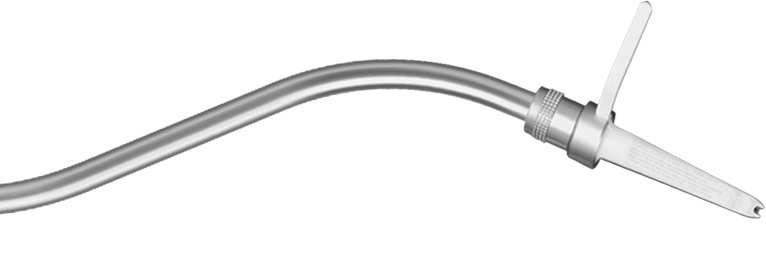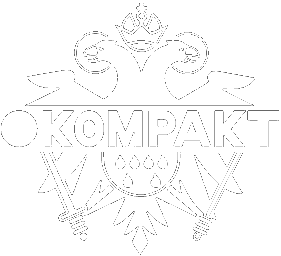
Los Lagos Thomas Fehlmann
Includes high-quality Mp3 download
180g Vinyl
Includes high-quality Mp3 download
NOTE: LIMITED EDITION COMES IN WHITE VINYL.
Includes high-quality Mp3 download
'Los Lagos’ is Thomas Fehlmann's seventh solo full-length, his 4th for Kompakt following his Berlin inspired 2010 full length 'Gute Luft'. in the musician's own words it’s about "checking the juice".
Establishing a picture of his current artistic condition, as suggested by the title - los lagos / die lage / the situation (literally translating to 'the lakes' but taking the meaning of 'wassup' in the context of a relaxed discussion between friends), the album refers to Fehlmann's "musical motivation, dreams and wishes" through the language of music exclusively: a way to "allow myself to techno" he says, "to techno as a means to deconstruct and rebuild again. Set up an area of tension, loose it in the flow of the grooves. Magnifying some detail out of proportion, regroup around that and slowly knit a texture. Expand." "It was time to take a bend and head where the sun rises or sets, wherever my heart drives me." This is pretty much the kind of decision Thomas Fehlmann has made. 61 and shining, longstanding member of The Orb, multi-talented composer and boundless experimentalist, had to make in the twilight of his collaboration with Alex Paterson, eager to taste the flavours of the unknown on his own again. "It was the moment when flexibility would have become compromise”. Far from being the demise of their joint dream, this was bound to split it in two distinct, parallel fantasies - rich of their own singularity.
As goes with that essential love of his for the free-flowing nature of electronic music, a fascination born out of its "lack of borders", capable of "inventing, changing the emphasis, experimenting with an unpredictable outcome", 'Los Lagos' "freely connects disparate extremes. Art, disco, minimalism, schmalz, jazz and funk". As he likes to say, Fehlmann's head functions as a sampler, capturing elements and re-assembling them under his own embracing perspective ; not afraid to leap from a deep, dubbed-out hypnotism ('Window', 'Morrislouis', 'Freiluft') to the playfulness of '90s-style bleepy schaffel ('Tempelhof' featuring Max Loderbauer), through out-there, muscle-flexing dancefloor cuts ('Triggerism') onto the calmness of ambient ('Geworden’).
In need to keep his inner balance in check, Fehlmann committed himself to "switch off the control" and follow his intuition, which isn't so much of an easy process as he also wanted to incorporate the side disturbances experienced: "it’s a complex process of search and destroy to bring out a new beauty trying to expand my vocabulary". With 'Los Lagos', Fehlmann looked at finding "the structure that's surprising, disturbing and rewarding". The artwork for the record, courtesy of contemporary artist and friend Albert Oehlen whom he shares lots of artistic ambitions with, echoes the producer's "funky use of shape and space, sludge and clarity" like a second skin. A search for light and harmony that Fehlmann sums up eloquently: "Does your inner musical voice respond?", that is the question. Then "doors open up in unexpected corners, rays of light appear; you follow through and you're in - in your oasis."
Establishing a picture of his current artistic condition, as suggested by the title - los lagos / die lage / the situation (literally translating to 'the lakes' but taking the meaning of 'wassup' in the context of a relaxed discussion between friends), the album refers to Fehlmann's "musical motivation, dreams and wishes" through the language of music exclusively: a way to "allow myself to techno" he says, "to techno as a means to deconstruct and rebuild again. Set up an area of tension, loose it in the flow of the grooves. Magnifying some detail out of proportion, regroup around that and slowly knit a texture. Expand." "It was time to take a bend and head where the sun rises or sets, wherever my heart drives me." This is pretty much the kind of decision Thomas Fehlmann has made. 61 and shining, longstanding member of The Orb, multi-talented composer and boundless experimentalist, had to make in the twilight of his collaboration with Alex Paterson, eager to taste the flavours of the unknown on his own again. "It was the moment when flexibility would have become compromise”. Far from being the demise of their joint dream, this was bound to split it in two distinct, parallel fantasies - rich of their own singularity.
As goes with that essential love of his for the free-flowing nature of electronic music, a fascination born out of its "lack of borders", capable of "inventing, changing the emphasis, experimenting with an unpredictable outcome", 'Los Lagos' "freely connects disparate extremes. Art, disco, minimalism, schmalz, jazz and funk". As he likes to say, Fehlmann's head functions as a sampler, capturing elements and re-assembling them under his own embracing perspective ; not afraid to leap from a deep, dubbed-out hypnotism ('Window', 'Morrislouis', 'Freiluft') to the playfulness of '90s-style bleepy schaffel ('Tempelhof' featuring Max Loderbauer), through out-there, muscle-flexing dancefloor cuts ('Triggerism') onto the calmness of ambient ('Geworden’).
In need to keep his inner balance in check, Fehlmann committed himself to "switch off the control" and follow his intuition, which isn't so much of an easy process as he also wanted to incorporate the side disturbances experienced: "it’s a complex process of search and destroy to bring out a new beauty trying to expand my vocabulary". With 'Los Lagos', Fehlmann looked at finding "the structure that's surprising, disturbing and rewarding". The artwork for the record, courtesy of contemporary artist and friend Albert Oehlen whom he shares lots of artistic ambitions with, echoes the producer's "funky use of shape and space, sludge and clarity" like a second skin. A search for light and harmony that Fehlmann sums up eloquently: "Does your inner musical voice respond?", that is the question. Then "doors open up in unexpected corners, rays of light appear; you follow through and you're in - in your oasis."
„Los Lagos“ ist das siebte Soloalbum von Thomas Fehlmann, sein viertes für Kompakt nach seinem Berlin-Album „Gute Luft“ von 2010. In den Worten Thomas Fehlmanns geht es darum, die Säfte zu checken.
Wie der Titel andeutet – los lagos, die Lage, the situation (wörtlich übersetzt in „Die Seen“ und der Rest ist lost in translation) – entwickelt Fehlmann ein Bild seines derzeitigen künstlerischen Status quo. Das Album rekurriert mittels der Sprache der Musik allein auf seine „musikalische Motivation, seinen Träumen und Wünschen“. Ein Weg, um „mir selbst den Techno zu erlauben“, wie er sagt, „ein Techno als Mittel zur Dekonstruktion und zum Wiederaufbau. Um ein Feld der Spannung zu errichten, es im Fluss der Grooves zu lockern. Um ein Detail unverhältnismäßig zu vergrößern, neu zu arrangieren und lang-sam eine Textur daraus zu weben und auszudehnen.“
„Es war an der Zeit eine Biegung zu nehmen und dahin zu steuern, wo die Sonne auf- oder untergeht.“ Das ist so ziemlich die Art von Entscheidung, die Thomas Fehlmann getroffen hat. Fehlmann, 61 und leuchtendes, langjähriges Mitglied von The Orb, multitalentierter Komponist und grenzenloser Experimentator, musste aus dem Dämmerlicht seiner Zusammenarbeit mit Alex Paterson hervortreten, um den Geschmack des Unbekannten nocheinmal selbst zu testen. „Es war der Moment, als Flexibilität zum Kompromiss wurde.“ Weit vom Tod ihres gemeinsamen Traums entfernt, war die Idee geboren von zweien klaren, parallelen Fantasien – reich an jeweiliger Einzigartigkeit.
Mit einer wesentlichen Liebe für die freifließende Natur elektronischer Musik, einer Faszination für die „fehlenden Grenzen“, die in der Lage sind „zu erfinden, den Schwerpunkt zu verlagern, mit einem unvorhersehbaren Resultat zu experimentieren“, verbindet „Los Lagos“ „ungleiche Extreme. Kunst, Disco, Minimalismus, Schmalz, Jazz und Funk.“ Wie er gerne sagt, funktioniert sein Gehirn wie ein Sampler, Elemente einfangend, sie unter seiner allumfassenden Perspektive neu zusammensetzend; furchtlos vor dem deepen, dubbed-out Hypno-tismus („Windos“, „Morrislous“, „Freiluft“), der Verspieltheit vom fiepsenden Schaffel der 90er Jahre („Tempelhof“ feat. Max Loderbauer), bis hin zu den muskelspielende Dancefloor-Tracks („Triggerism“) und der Ruhe vom Ambient („Geworden“).
Er musste seine innere Balance ins Gleichgewicht bringen. Fehlmen hat sich selbst dazu verpflichtet die „Zügel aus der Hand zu legen“ und seiner Institution zu folgen, was nicht so einfach ist, wenn man auch die erlebten Störungen von Außen eingliedern möchte: „Es ist ein komplizierter Prozess des Suchens und Zerstörens, eine neue Schönheit hervorzubringen aus dem Versuch mein Vokabular zu erweitern.“ Mit „Los Lagos“ hat Fehlmann versucht „die Struktur, die überrascht, verstört und belohnt“ zu finden. Das Artwork des Albums, das der Künstler und Freund Albert Oehlen entworfen hat, mit dem Fehlmann viele künstlerische Ambitionen teilt, gibt den „funky Gebrauch von Form und Raum, Matsch und Klarheit“ des Produzenten wieder, wie eine zweite Haut. Eine Suche nach Licht und Harmonie, die Fehlmann auf diese eine Frage runterbricht: „Antwortet deine innere musikalische Stimme?“. Dann „öffnen sich Türen in unbekannte Zimmer, Strahlen von Licht durchströmen den Raum; du gehst rein und du bist drin – in deiner Oase.“
Wie der Titel andeutet – los lagos, die Lage, the situation (wörtlich übersetzt in „Die Seen“ und der Rest ist lost in translation) – entwickelt Fehlmann ein Bild seines derzeitigen künstlerischen Status quo. Das Album rekurriert mittels der Sprache der Musik allein auf seine „musikalische Motivation, seinen Träumen und Wünschen“. Ein Weg, um „mir selbst den Techno zu erlauben“, wie er sagt, „ein Techno als Mittel zur Dekonstruktion und zum Wiederaufbau. Um ein Feld der Spannung zu errichten, es im Fluss der Grooves zu lockern. Um ein Detail unverhältnismäßig zu vergrößern, neu zu arrangieren und lang-sam eine Textur daraus zu weben und auszudehnen.“
„Es war an der Zeit eine Biegung zu nehmen und dahin zu steuern, wo die Sonne auf- oder untergeht.“ Das ist so ziemlich die Art von Entscheidung, die Thomas Fehlmann getroffen hat. Fehlmann, 61 und leuchtendes, langjähriges Mitglied von The Orb, multitalentierter Komponist und grenzenloser Experimentator, musste aus dem Dämmerlicht seiner Zusammenarbeit mit Alex Paterson hervortreten, um den Geschmack des Unbekannten nocheinmal selbst zu testen. „Es war der Moment, als Flexibilität zum Kompromiss wurde.“ Weit vom Tod ihres gemeinsamen Traums entfernt, war die Idee geboren von zweien klaren, parallelen Fantasien – reich an jeweiliger Einzigartigkeit.
Mit einer wesentlichen Liebe für die freifließende Natur elektronischer Musik, einer Faszination für die „fehlenden Grenzen“, die in der Lage sind „zu erfinden, den Schwerpunkt zu verlagern, mit einem unvorhersehbaren Resultat zu experimentieren“, verbindet „Los Lagos“ „ungleiche Extreme. Kunst, Disco, Minimalismus, Schmalz, Jazz und Funk.“ Wie er gerne sagt, funktioniert sein Gehirn wie ein Sampler, Elemente einfangend, sie unter seiner allumfassenden Perspektive neu zusammensetzend; furchtlos vor dem deepen, dubbed-out Hypno-tismus („Windos“, „Morrislous“, „Freiluft“), der Verspieltheit vom fiepsenden Schaffel der 90er Jahre („Tempelhof“ feat. Max Loderbauer), bis hin zu den muskelspielende Dancefloor-Tracks („Triggerism“) und der Ruhe vom Ambient („Geworden“).
Er musste seine innere Balance ins Gleichgewicht bringen. Fehlmen hat sich selbst dazu verpflichtet die „Zügel aus der Hand zu legen“ und seiner Institution zu folgen, was nicht so einfach ist, wenn man auch die erlebten Störungen von Außen eingliedern möchte: „Es ist ein komplizierter Prozess des Suchens und Zerstörens, eine neue Schönheit hervorzubringen aus dem Versuch mein Vokabular zu erweitern.“ Mit „Los Lagos“ hat Fehlmann versucht „die Struktur, die überrascht, verstört und belohnt“ zu finden. Das Artwork des Albums, das der Künstler und Freund Albert Oehlen entworfen hat, mit dem Fehlmann viele künstlerische Ambitionen teilt, gibt den „funky Gebrauch von Form und Raum, Matsch und Klarheit“ des Produzenten wieder, wie eine zweite Haut. Eine Suche nach Licht und Harmonie, die Fehlmann auf diese eine Frage runterbricht: „Antwortet deine innere musikalische Stimme?“. Dann „öffnen sich Türen in unbekannte Zimmer, Strahlen von Licht durchströmen den Raum; du gehst rein und du bist drin – in deiner Oase.“
Product Safety Information | Sicherheits- und Herstellerinformationen
Responsible for product safety | Verantwortlich für die Produktsicherheit:
Kompakt
Mayer Paape Voigt GbR
Werderstrasse 15-19
50672 Cologne
Germany
+49 221 94 995 110
info@kompakt.fm
kompakt.fm
Kompakt Newsletter
Stay in the loop and subscribe to our webshop newsletter
© 2025 Kompakt
Contact
Privacy
Imprint
Terms & Conditions
Shipping
Pick-Up / Abholung
Downloads
Cookies



